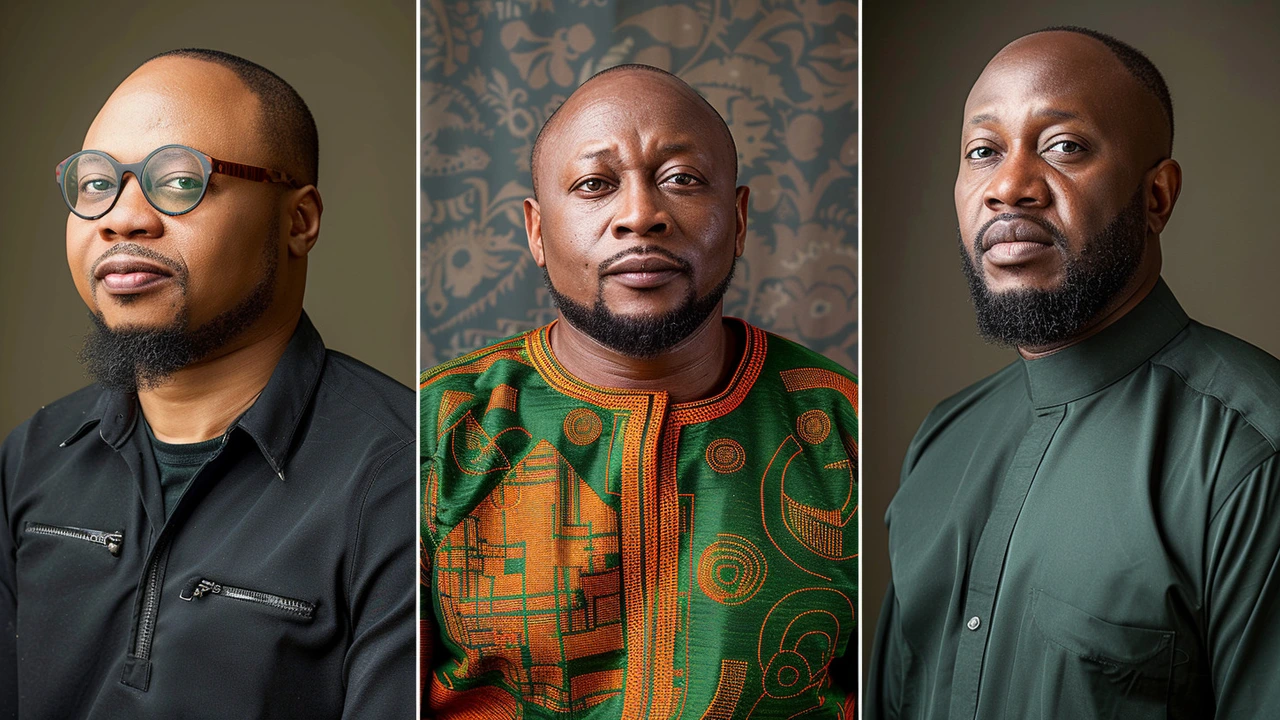Charles Ogbu Criticizes Yul Edochie Over Insensitivity Claims Amid Junior Pope's Betrayal Revelations
 May, 22 2024
May, 22 2024
Introduction to the Controversial Statements
Nigerian social justice advocate Charles Ogbu has ignited an intense debate following his recent critique of Nollywood actor Yul Edochie. Ogbu branded Edochie as the most insensitive person from 2023 to 2024. This accusation stemmed from Edochie’s statements about his late colleague, Junior Pope, accusing him of repeated betrayal while they were both navigating their careers in the Nigerian film industry.
The controversy arose when Yul Edochie disclosed that Junior Pope, whom he regarded as a brother and a close confidant, had repeatedly stabbed him in the back. Edochie emphasized that he had always supported Pope during times of need. He chose to reveal these grievances shortly after Pope's passing, hinting that he would share further details soon, supposedly for the lesson's benefit.
Backstory: The Bond Between Edochie and Pope
Yul Edochie and Junior Pope shared a bond that was widely recognized in the Nollywood industry. Colleagues often referred to their friendship as a testament to camaraderie amidst the intense competition and creativity of the film industry. Edochie often played roles depicting the values of loyalty and brotherhood, roles that many believed were reflective of his off-screen personality.
Junior Pope also enjoyed a strong following and was celebrated for his charismatic screen presence and dedication to his craft. The camaraderie between Pope and Edochie often played out in public settings and on social media, reinforcing the perception of a deep-seated friendship that fans and colleagues admired.
The Allegations and Aftermath
Despite the perceived closeness, Yul Edochie's recent revelations have cast a shadow over their relationship. In a statement that caught many off guard, Edochie accused Pope of betraying him on several occasions. He did not hold back his disappointment, stating that he had chosen to keep the details of the betrayal under wraps until after Pope's funeral out of respect for his memory.
While Yul Edochie offered to share the full story eventually, Charles Ogbu has criticized this decision, arguing that airing such grievances publicly after Pope's death is both insensitive and unnecessary. Ogbu sees this as not only a personal attack but also a broader commentary on handling grievances involving deceased individuals.
Charles Ogbu's Criticism
Charles Ogbu’s condemnation of Yul Edochie’s timing and manner of disclosure has added another layer to the controversy. Ogbu, known for his outspoken nature and activism in social justice, did not mince words in his critique. He described Edochie's actions as insensitive, prioritizing personal vindication over the respect due to a departed colleague.
According to Ogbu, the act of revealing such betrayals should be approached with greater sensitivity, especially when it involves deceased individuals who cannot defend themselves. Ogbu's stance has resonated with many who believe that there is a need for decorum and empathy when handling posthumous disclosures.
Public Reaction
The public response to this incident has been polarized. Fans of both Edochie and Pope have taken to social media to express their opinions. Some support Edochie's right to share his truth, arguing that the timing, though unfortunate, does not diminish the validity of his experience. They see it as a necessary expose to prevent future betrayals in the industry.
Others align with Charles Ogbu, condemning Edochie’s timing and choice to go public with such sensitive information. For these critics, the respect for the dead and the timing of disclosures are paramount. They argue that grievances involving those who have passed should be addressed privately, preserving the integrity of the deceased's memory.
The Broader Implications
This incident has broader implications for how personal grievances should be handled, particularly in high-profile industries like Nollywood. It raises essential questions about the responsibilities public figures hold when discussing their personal experiences with colleagues, especially posthumously. The balance between personal transparency and respect for the deceased is delicate and requires careful navigation.
Moreover, this situation reflects on the ethics of public disclosure in the age of social media, where personal matters quickly become public discussions. The amplification of such issues on these platforms can sometimes overshadow the core message, leading to unintended consequences and exaggerated criticisms.
Understanding Sensitivity and Respect
The debate ignited by Charles Ogbu and Yul Edochie's exchange highlights the importance of sensitivity towards the deceased. It’s a reminder of the emotional landscapes people navigate, especially after losing someone they perceived as close. While betrayal and grievances are valid experiences, the approach to sharing such stories can significantly impact how they are received and understood by the public.
In many cultures, including those within Nigeria, the memory of the deceased is revered, and speaking ill of them is frowned upon. Understanding and respecting these cultural nuances is crucial, particularly in the context of public figures who influence broader public sentiments.
Conclusion and the Path Forward
As the dust settles on this controversy, it is essential to reflect on the lessons it brings to light. The dialogue around Edochie’s revelations and Ogbu’s critique does not only concern the individuals involved but serves as a broader discourse on respect, sensitivity, and the handling of personal grievances within public spheres.
Going forward, public figures and individuals alike may need to consider the context and potential impact of their disclosures. Balancing the need for personal truth with empathetic communication will always be a fine line to walk, especially in industries where public perception plays a significant role.
Ultimately, the story of Yul Edochie, Junior Pope, and Charles Ogbu underscores the need for compassion, respect, and understanding in all interactions, especially those that transcend life into memory. Let this be a reminder to navigate personal pain with a view towards healing, and public discourse with a commitment to respectful dialogue.